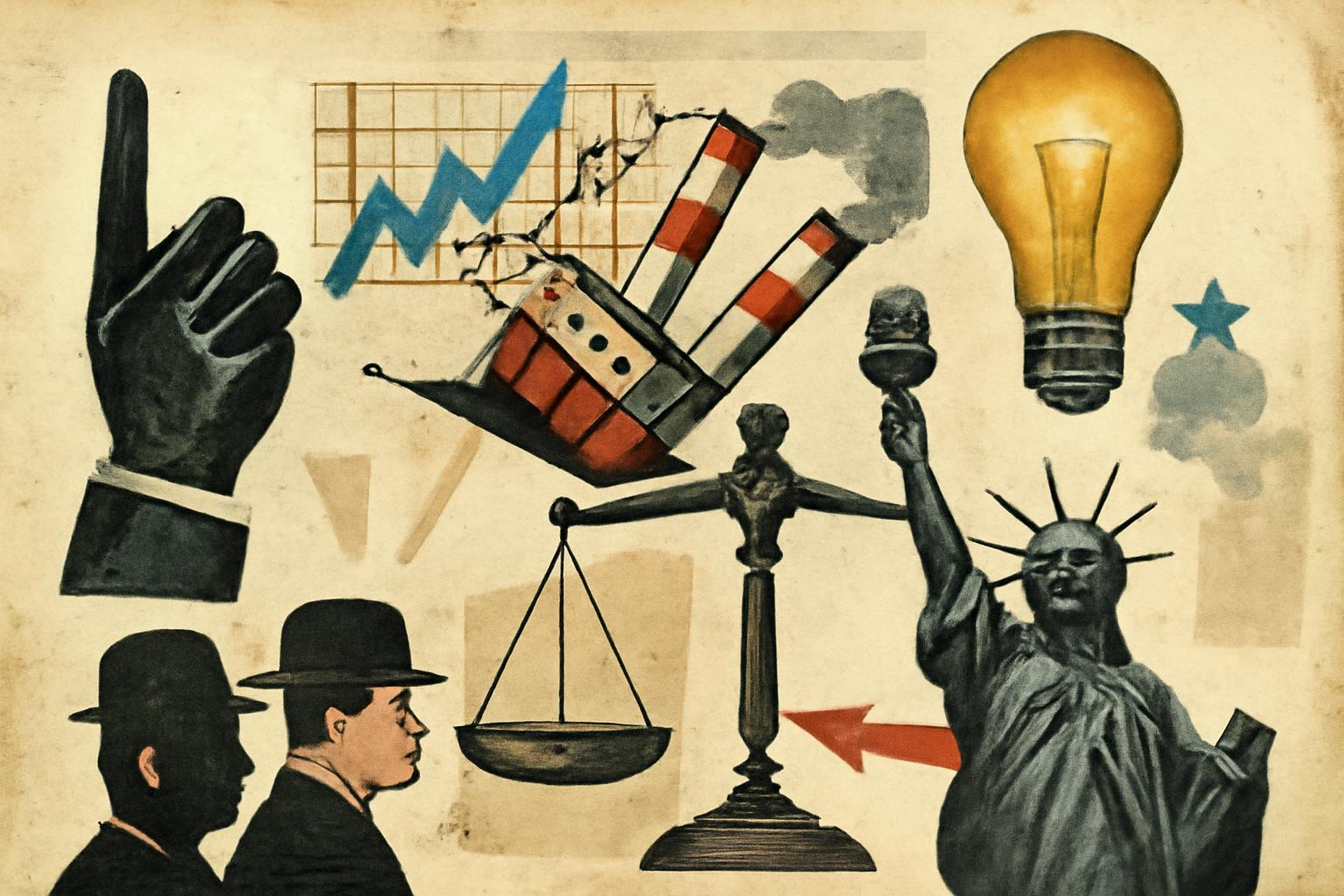A political shift is coming as a long‑running party of state control falters under the weight of price signals the public can feel. When a ruling coalition that nationalized gas and used subsidies to buy loyalty meets inflation, shortages, and a currency crunch, the market’s absence becomes undeniable to ordinary people. The early numbers—conservative leadership looming on the horizon, a weakened party that once framed itself as the redistributor of resource wealth, a broad field of candidates, and a turnout pressed by compulsory voting—signal not just a change of faces but a clash over who should decide how scarce wealth is allocated. The economy is shouting that centralized command and energy nationalism are choking the incentives to invest, innovate, and preserve the very assets that lay the groundwork for sustainable improvement.
From a Hayekian perspective, the key error is assuming a central authority can possess enough knowledge to plan complex, interconnected markets. The inflationary spiral, fuel shortfalls, and foreign exchange squeezes are predictable consequences of manipulating prices, currency, and investment through bureaucratic fiat. Knowledge is dispersed among millions of actors making local, context‑specific choices; a single state planner cannot aggregate it without creating blindness elsewhere in the system. The remedy is not another grand plan or a reallocation of resources by decree but a restoration of spontaneous order through competitive markets, rule‑of‑law governance, and minimal, predictable government interference. The energy sector, to the extent it belongs to the realm of property and contracts, should be opened to private ownership and competition rather than tethered to a political machine that rewards loyalty with subsidies and risks collapse if the subsidies become unaffordable.
Nozick would insist that the only legitimate role of the state is to protect individual rights—life, liberty, property—from aggression, theft, and fraud. Any attempt to redistribute wealth through coercive taxation or to centralize control over energy and resources violates the rights of those who earn and own private property. The history of centralized control often looks impressive on a pamphlet but rotten in practice: it creates a coercive entanglement where producers bear the costs of political risk, and citizens pay with lower incentives and fewer options. If the electorate wants to improve living standards, the answer is not more state planning but a rights‑respecting framework that honors voluntary exchange, contract enforcement, and the rule of law—absolutely free from political favoritism or opportunistic redistribution.
Rand would underscore the moral argument: prosperity flows from rational self‑interest pursued within a framework of individual rights and voluntary exchange, not from coercive schemes that treat people as means to political ends. A sustained economic revival requires ending energy nationalism and other coercive schemes that compel people to serve the state’s budgets. The moral economy is one in which people freely trade, save, invest, and innovate; wealth is created by productive effort and protected by a neutral, reliable legal order, not by political violence disguised as policy. Any policy posture that promises easier access to other people’s money or that centralizes control over markets is not merely inefficient; it’s a philosophical betrayal of what it means to live as an autonomous, rational agent.
What to do next, in concrete libertarian terms: scale back state ownership and intervention in the energy sector, privatize where feasible, and restore competitive pressures that spur efficiency and resilience. End or sharply limit price controls, subsidies, and arbitrary licensing that distort signals and invite cronyism. Stabilize the monetary backdrop through rules and credible commitment rather than discretionary tinkering that feeds inflation and erodes purchasing power. Strengthen the rule of law so contracts are predictable, property rights are protected, and investment risks are judged by markets rather than by who has political influence. Promote voluntary exchange, open markets, and cross‑border trade to widen options for families and firms alike. Replace broad, coercive welfare with targeted, opt‑in private solutions and charitable mechanisms that respect individual choice rather than mandate redistribution through force.
In short, the turning point is not a new party or a different manager of the same state; it’s a re‑anchoring of policy in the principles that Hayek, Nozick, and Rand defend: reduce coercive power, unleash voluntary cooperation, and protect the rights that let people build lives rather than wait for the state to chart their futures. The path to genuine improvement lies in shrinking the state’s prerogatives, empowering individuals, and letting prices, competition, and private property coordinate growth without the deadweight of central planning.
